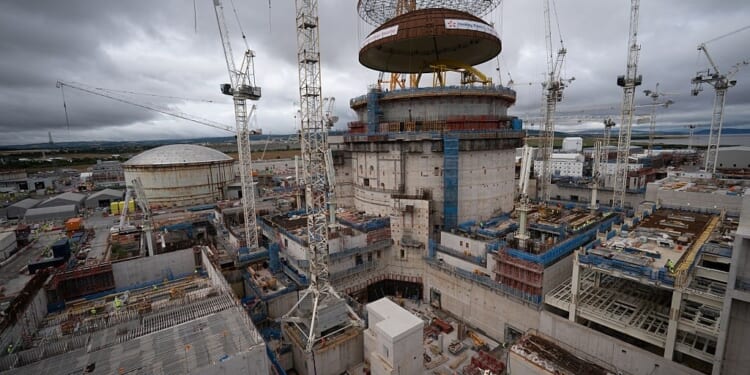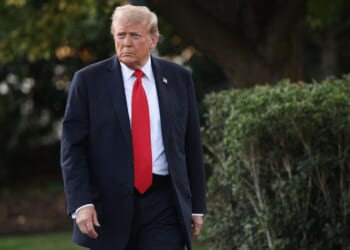For years, the United Kingdom has struggled to house the growing number of asylum seekers arriving in the country. As in the United States, hotels became a short-term solution that turned into a long-term, costly habit. Now a new twist is making UK ministers wince. Some of those hotels are reportedly owned by companies linked to China, meaning millions of pounds in British taxpayer funds may be flowing into the pockets of a foreign government considered a strategic threat.
Journalists from The Sunday Times examined Chinese investments in Britain and found that companies with ties to the Chinese state now own about £190 billion worth of property and businesses. Just four years ago, that number was £134 billion. These assets include infrastructure, schools, and hotels, some of which have been used as migrant housing.
One major company is Kew Green Hotels. It runs more than 60 hotels in the UK and is owned by a Chinese state-controlled business called China Tourism Group Corporation Limited. Two of its hotels, located in Ashford and Warrington, have been booked almost entirely by the Home Office for asylum seekers, earning millions of pounds for the foreign proprietors.
Campanile, another UK hotel brand, is owned by Jin Jiang International, which the Shanghai city government controls. One of its hotels has been used as housing for asylum seekers.
Government spending on hotels and other temporary housing for migrants is also soaring. According to the National Audit Office, the bill for accommodations over the 2019-to-2029 contract period is now forecast to rise sharply, from an early estimate of £4.5 billion to around £15.3 billion.
Influence in the UK
China has a large and expanding foothold in the United Kingdom. This isn’t about cheap gadgets or imported electronics. It’s about ownership of long-term, essential parts of British life, such as energy, utilities, real estate, schools, and major companies. These investments do not always appear to represent political influence, but they can affect national security, the economy, and even the way public services operate.
One of the most prominent examples is nuclear energy. China General Nuclear Power Group owns a major share of Hinkley Point C, a huge nuclear power plant being built in Somerset. When the station eventually powers British homes, a Chinese state company will benefit from the profits and have a role in one of the UK’s most important energy sources.

Chinese state-owned firms have also bought into Britain’s utility networks. China Investment Corporation, China’s sovereign wealth fund, has a stake in Cadent Gas, which provides gas to millions of UK homes. The same fund is also associated with a share of Thames Water, which supplies water to London and other major areas. That means a foreign government owns part of the UK’s water system.
Another example is a large and historic property in London called Royal Mint Court. The Chinese government bought the land to build its new embassy right next to the Tower of London. This caused debate, not only because of the location but also because it represents a foreign state owning a valuable and symbolic piece of land right in the capital.
China’s presence is also connected to British schools. A number of private schools in the UK have been bought by companies tied to the Chinese state or the Chinese Communist Party. This creates concerns for some British officials, because education influences young people and culture.
Real estate ownership is another area growing quickly. A Guardian investigation discovered that Chinese companies have bought significant amounts of UK property through complex offshore networks, which makes it harder to see exactly who owns what. That becomes a problem when those owners are connected to a foreign government.
When you add everything up, China does not just sell goods to the UK. It owns large parts of the country — nuclear power, water, gas, major companies, schools, and big commercial properties — which raises serious questions. Who controls key services? Where do profits go? What happens if a political dispute affects economic decisions?
China’s Influence in the United States
Many Americans do not realize how much of their country is owned, in part, by Chinese state-linked businesses and investors. Chinese investment in the United States has totaled more than $140 billion since 2002, and more than half of that comes from companies controlled, guided, or heavily influenced by the Chinese government, according to Public Citizen.
A statement from a White House fact sheet explained, “Certain foreign countries, including China, systematically direct investment in American companies to gain access to cutting-edge technology, intellectual property, and leverage in strategic industries, which must be countered.” The statement continued:
“China is exploiting our capital and ingenuity to fund and modernize their military, intelligence, and security operations, posing direct threats to United States security with weapons of mass destruction, cyber warfare, and more.”
Real estate is not the only concern. China has also purchased American farmland. While the total remains less than 1% of all foreign-owned agricultural land, lawmakers worry that foreign ownership of farmland near sensitive military areas or that involves food supply systems could create national security risks. According to the release, “Foreign entities and individuals hold roughly 43 million acres of U.S. agricultural land, which is nearly 2% of all land in the US.” And, “China owns more than 350,000 acres of farmland across 27 states.”
The concern is not that Chinese businesses are investing in the UK and America. It is the fear that the companies are ultimately controlled by the Chinese Communist Party or by state-owned leadership that honors obligations to Beijing above all else. That may turn what looks like ordinary business activity into something more political and threatening.
The investments are real. The profits are real. And so are the concerns. If a foreign government has direct or indirect control over land and facilities, could that ever be used to pressure US decision-makers? Could critical assets be shut down or exploited? The question is no longer who is buying the land and buildings, but who ultimately holds the power behind them.

















